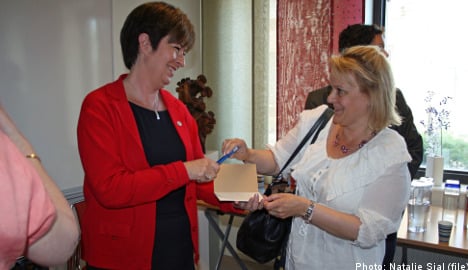With less than three months to the general election, polls are now being published almost daily. The Red-Green opposition, which has held a commanding lead over the government for most of the past four years, is now trailing the centre-right coalition, according to the poll commissioned by newspapers Sydsvenskan and Dagens Nyheter.
The four governing parties had the support of 49.1 percent of voters, while the opposition has 44.5 percent support.
Support for Mona Sahlin’s Social Democrats has fallen by almost 2.5 percentage points since May and by 5 percent since April. The party’s 30.0 percent rating is its lowest in ten years.
The Moderate Party are at 33.1 percent, an increase of 1.3 points since May. The centre-right lead of 4.6 points is within the margin of error, but the opposition had a lead of 8.1 points as recently as April.
The poll confirms a number of other recent surveys, which also showed a small centre-right lead over the opposition.
The Social Democrats are losing support primarily among voters under 44 and particularly among those under 30.
Synovate interviewed 2,973 people over the age of 18 between 7th and 22nd June. They were asked: ‘If there was a parliamentary election today, which party would you vote for?’



 Please whitelist us to continue reading.
Please whitelist us to continue reading.
Member comments